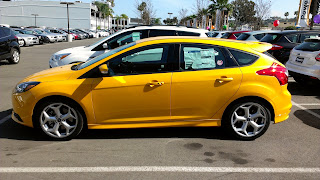 The car buying process has not changed in decades. If you wanted to buy a car, you find your local dealership, negotiate with a salesperson, likely argue with them a bit, sign the paperwork and take delivery of your vehicle. This was pretty much the same regardless of buying a new or used car. Oftentimes, especially in recent years, a bit of researching online likely meant you, as the buyer, knew more about the car than the disinterested salesperson trying to sell you the car. Most dealerships, especially those that do not serve luxury car buyers, no longer place as much emphasis on training their personnel about the details of the products, instead focusing on the process of selling and convincing buyers to buy. All of this culminates in a buying process that feels rather sad and disappointing, putting a bit of a damper on what should be a pretty exciting purchase.
The car buying process has not changed in decades. If you wanted to buy a car, you find your local dealership, negotiate with a salesperson, likely argue with them a bit, sign the paperwork and take delivery of your vehicle. This was pretty much the same regardless of buying a new or used car. Oftentimes, especially in recent years, a bit of researching online likely meant you, as the buyer, knew more about the car than the disinterested salesperson trying to sell you the car. Most dealerships, especially those that do not serve luxury car buyers, no longer place as much emphasis on training their personnel about the details of the products, instead focusing on the process of selling and convincing buyers to buy. All of this culminates in a buying process that feels rather sad and disappointing, putting a bit of a damper on what should be a pretty exciting purchase.
But what if that process could be different? What if there was a way to buy a car with no pressure? What if there were people who were extraordinarily educated about the product and were able to help you answer questions that you had? What if instead of you walking into a dealership knowing more than the salesperson, you did not go to a dealership at all? What if the car you bought could be delivered to your door, fully tailored to you specifications, by a knowledgeable person who would walk you through all the details of the car?
 |
| Tesla's store in Santa Monica, CA |
Want to test drive the Model S? Go online and submit a request and someone will contact you to schedule one.
Want to buy the Model S? Go online and configure your car, submit the specifications, and someone will reach out to you to explain the process and complete the paperwork. The car is built to your specs and delivered to your door.
The entire process is without pressure, incredibly pleasant, and is about as painless as they come. There are people to help provide assistance every step of the way and at no time do you feel pressured by anyone. This is the way car buying really should be. So why is Tesla the only automaker using the model?
 |
| Tesla store test cars in Natick, MA |
That is because of the other reason, which is the National Automotive Dealers Association (NADA). This lobbying group (yes, no matter that they claim to be an industry association, they are lobbyists) represents the interests of the dealerships throughout the country at a national level. Affiliates that roll up to the national organization push the same agenda at state or local levels in an effort to further the interests of the member dealers. These lobbyists have already put in place legislation that prevents automakers from setting up company owned dealerships that compete with the franchised dealers and have recently made a major push to attempt to prevent Tesla from continuing its direct-to-consumer sales model. Now, before we go down the path of demonizing anyone, I fully understand that organizations like NADA serve a purpose, but taking efforts to stanch competition under the guise of "protecting the consumer" seems disingenuous at best, and monopolistic at worst.
 |
| Monroney sticker in the window of new car for sale |
However, for volume models, cars like the Honda Accord or Toyota Camry, the sheer number of variations and need for instant gratification in our modern society means that those sorts of vehicles will always benefit from dealerships that can stock large inventories with a great variety of the same car. For less expensive volume models, it is still nice to be able to go to the dealership and pick out exactly the car you want to take home so, for the moment, dealerships can breathe easy and will continue to remain a part of our car buying process. That said, there are plenty of things that dealerships can do to improve our interactions with them, but that is a discussion for another day.

No comments :
Post a Comment